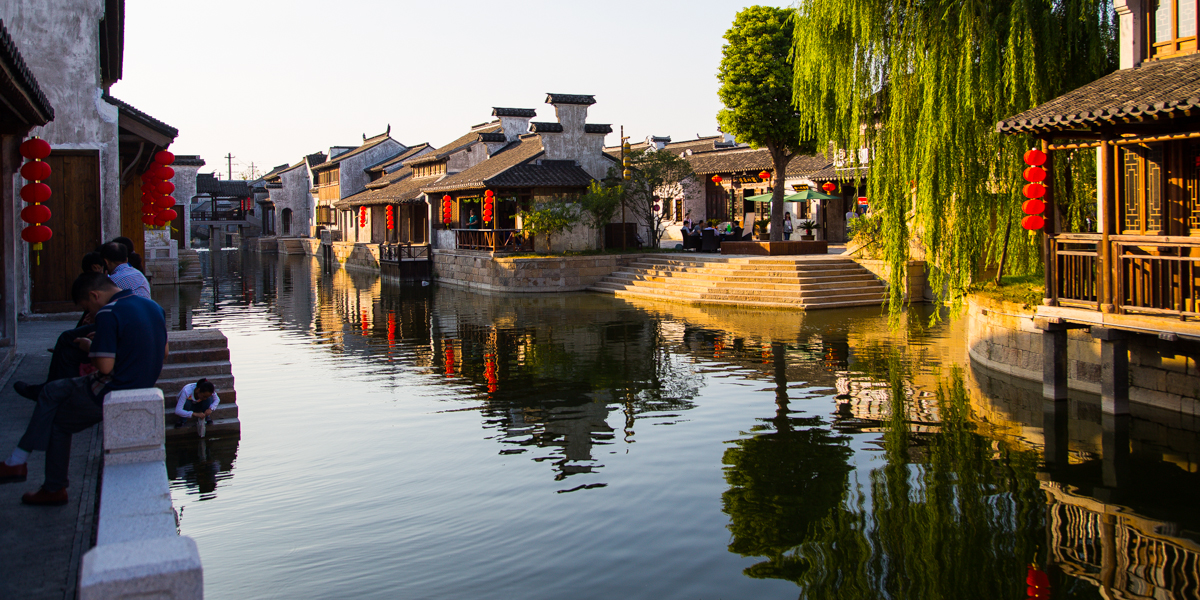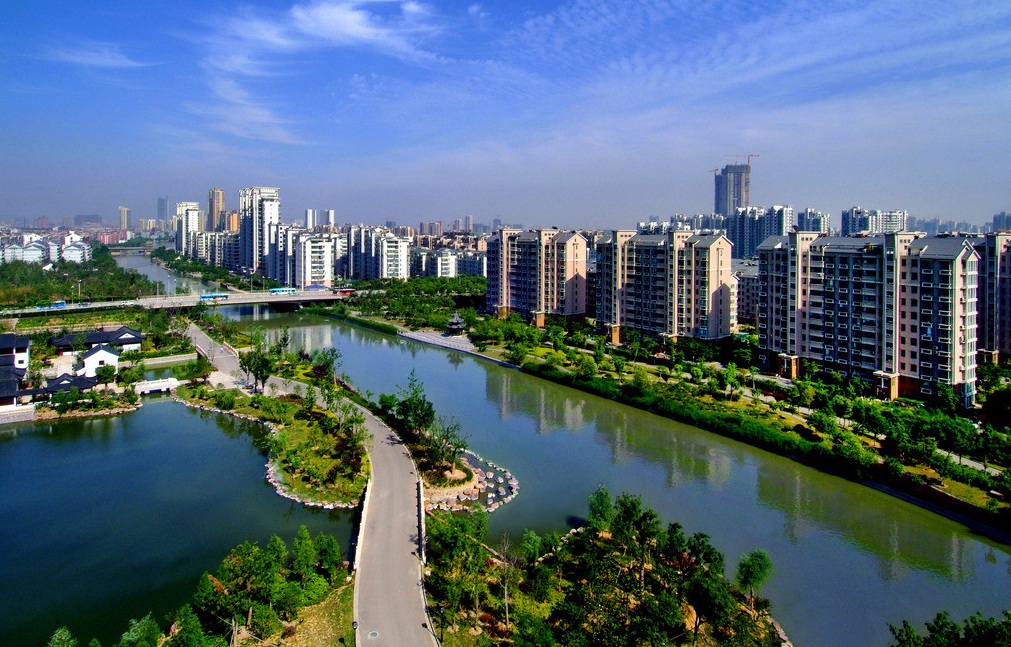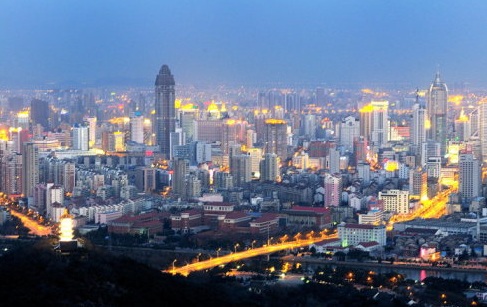24 Hours Hotline: +86 137-3541-1378
Email:[email protected]
24 Hours Hotline: +86 137-3541-1378
Email:[email protected]

Wuxi (Chinese:??)
Brief Introduction of Wuxi
Wuxi is an old city in the Yangtze River delta area, located in southern Jiangsu province. It borders two other large cities, Changzhou to the west and Suzhou to the east, situated along the Grand Canal at that waterway's Juncion with loca rivers near the northeastern corner of Lake Tai. Wuxi was originally known as a source of tin, but, by the time the county was founded in 202 BC under the Xi Han dynasty, the deposits had been exhausted, and the county was named Wuxi, means "no Tin anymore". from the end of the 3rd century the city was subordinated to the commandery (district under the control of a commander) if Biling (later Changzhou) and remained so except for a brief interval under the rule of the Yuan (Mongol) dynasty, when it was made an independent prefercture.
Historical Importance of Wuxi
Known as the 'the Pearl of Tai Lake', Wuxi has a really long and rich history. It has been the economic and politic center south of Yangtze River since Spring and Autumn Period (770 BC-476 BC). Lots of outstanding people rose from here, leaving many related historical and cultural relics hidden among the charming natural beauty. On the other hand, Wuxi also has a nicely-developed urban area with tidy, clean cityscape and convenient public transportation.
Since early times the area around Lake Tai has been extremely fertile. After the completion of the Grand Canal in 609, Wuxi became a transshipment centre for tax grain destined for the capital. It thus became one of the greatest grain markets in China, handling vast quantities of rice annually, and was the seat of a complex commercial organization of extremely wealthy merchants and middlemen. When the Grand Canal fell into decay after 1850, Wuxi retained its importance as a rice market, exporting grain to Shanghai, 80 miles (130 km) to the southeast, for shipment by sea to Tianjin to the north. The trade in grain increased still further after the completion of a railway link to Shanghai and to Zhenjiang and Nanjing to the northwest, in 1908.
Geography
The city plan, as is typical of many older Chinese cities, is of a central city with a roughly circular plan, crisscrossed with older canals, the main canal still seeing heavy barge traffic. Wuxi itself is on an alluvial plain of deep sedimentary deposits cut between limestone foothills, making it one of the sources for "scholar's rocks", the intricately weathered stones which were used as devices for contemplation.
Climate
Wuxi is hot and humid in summer and chilly and damp in winter, with an average annual temperature of 18 °C (64 °F) and very occasional snow. Because of its proximity to the East China Sea, it has a monsoon season and receives 100 centimetres (39 inches) of rain annually. Most tourist attractions in Wuxi are situated outdoors. Therefore, good weather is necessary for visiting. There are festivals, temples, lakes and gardens all beautiful and worth seeing.

Economy & Industry
Traditionally, Wuxi was an agricultural center but now this significance has weakened over years, in which the sector now yields only 2% of total GDP. The new trend of the sector is toward the eco-balance agriculture.
Wuxi is well known for being one of the birthplaces of China's modern industry and commerce, as well as the hometown of many important businessmen who have played essential roles in building commerce in Shanghai since the early 20th century. Wuxi has traditionally been a centre of the textile industry, being engaged in both cotton textiles and silk reeling. Textile mills were established there as long ago as 1894 and silk filatures (establishments for reeling silk) in 1904. This development was largely the work of Shanghai industrialists, many of whom were originally from Wuxi merchant families. The two cities have had unusually close links, and Wuxi was known colloquially before World War II as “Little Shanghai.” The cotton yarn produced was woven not only in the city itself but also in such nearby canal cities as Changzhou (northwest) and Suzhou (southeast), whereas the silk reeled in the city was mostly woven into cloth in Suzhou and (more recently) in Shanghai. Present-day Wuxi is the one of the greatest silk-reeling centres in China. Cotton textile production is also important and is the city’s largest single industry.
Other long-established industries include flour milling, rice polishing, and oil extraction. Industrial development has accelerated since the 1950s. The textile and food-processing industries have been modernized and expanded, and the city has become a centre for the engineering industry, particularly for the manufacture of machine tools and diesel engines. Wuxi also manufactures electrical equipment and cables and boiler-plant and textile machinery of various types; more recently, manufacture of chemicals and pharmaceuticals has become important.
Since 1949 the city’s importance as a national commercial centre has declined, although its role as a distribution and collection hub for the Lake Tai area has continued. An expressway between Shanghai and Nanjing passes through the city area, with two branch roads in the province stretching from the city north to Jiangyin and southwest to Yixing. The local airport provides flight service to several major cities in the country.

Tourism
With rich natural and cultural heritage, Wuxi is one of the top ten tourist cities in China. The typical features of the area is that of the regions of rivers and lakes. Wuxi occupies the most scenic part of Lake Taihu and enjoys the beautiful scenery. Theme parks like the Tang City, the Three Kingdoms City, the Water Margin City which feature daily live shows are new tourist attractions. The 88-meter tall bronze Buddha statue (Linshan Dafuo) and the holiday resorts add more appeal to the visitors.
Food and Restaurants
The dishes in Wuxi belong to Jiangsu Cuisine, which is one of the eight cuisines of China, featuring light and sweet foods, and the famous Wuxi dishes include pork steak with sauce, fried gluten puffs, steamed dumplings with pork, oil-dried bean curds and oil-grilled turnip cakes.
Wechat: Chinaprivatetour
24 Hours Hotline:
+86 137-3541-1378
* Authentic Experiences: Genuine local experiences that immerse you in the true essence of Suzhou and beyond.
* Safety First: Highest safety standards with secure activities and reliable transportation.
* Customizable Tours: Flexible itineraries tailored to your interests and needs.
* Local Expertise: In-depth knowledge of Suzhou and China, offering exclusive insights.
* Professional Guides: Licensed bilingual guides with over 5 years of experience.
* Comfortable Travel: Experienced drivers and well-maintained vehicles for a smooth journey.
* Sustainable Tourism:Commitment to responsible tourism and supporting local communities.
* Customer-Focused: Personalized service and continuous improvement based on your feedback.
* Free Cancellation: Cancel up to 24 hours before travel for flexibility and peace of mind.
* 24/7 Support: Round-the-clock assistance for any questions or help needed.
1 to 1 tailor-made service from our professional travel advisors for the most sophisticated
Constantly excellent reviews for attraction, hotel and service Competitive price
Local experts provide quality tours Best selected knowledgeable local guides Authentic local restaurants
7*24 hours available to create you a worry-free tour. No Hidden Fees and absolutely no pressure to buy. Secured









Copyright © 2017 Suzhouprivatetour.com All rights reserved. 浙ICP备18056007号-4